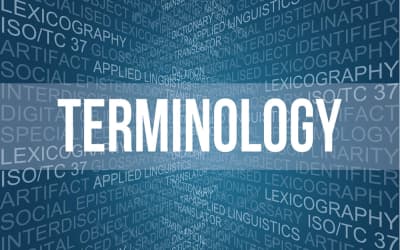A discussion of globalization, cultural awareness, the translation process, and the use of artificial intelligence in translations.
The Management of Terminology in Translations
A company-approved glossary or list of terminology is crucial for products and processes. Equivalent terms in all target languages should also be established. Proper terminology management is essential in a professional localization/translation process to ensure consistent language usage in organizational content. This article discusses the keys to m managing terminology in English as well as the best practices for terminology management in translation.
What is Terminology in Translation?
Terminology in translation is the use of specialized language and words that are used in a particular subject or context. It is critically important for a translator to have a deep understanding of the subject matter, and to have a working knowledge of the terminology used, to accurately convey the meaning of the source text into another language. This article discusses how to compile, store, and share terminology for translations and goes over the sizable benefits.
Machine Translation and the Human in the Loop
Translation apps, a particular form of machine translation, have become a vital tool for many people who need to...
10 Things You Should Know before Translating Your e-Learning Course
More and more businesses are turning to e-learning for training and development. First, with multicultural and...
The A, B, C’s of Corporate Training
Training, when done right, has a direct and measurable effect on performance. Almost always, when you have issues with...
eLearning Trends
Electronic courses, or what we commonly refer to as eLearning, are popular methods of education and instruction....
eLearning Benefits both Users and Instructors
In today’s digital age, students are no longer bound to desks that point at a teacher with the expectation to learn at...




